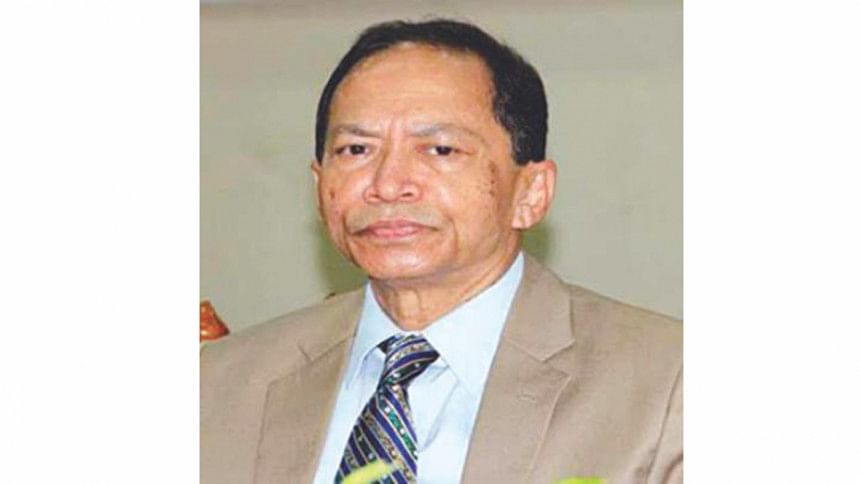End 'dual rule' in judiciary

Chief Justice Surendra Kumar Sinha yesterday blamed "dual rule" for hampering the judicial work and for increasing the litigants' sufferings, and sought restoration of the Supreme Court's full control over the lower courts to bring an end to the present situation.
The original article 116 of the 1972 constitution had given the SC power over the lower courts. The apex court had the power to control lower court judge's postings, promotions and grant of leave. It could also discipline people employed in the judicial service, and had control over the magistrates' exercise of judicial power.
But over the years, article 116 was amended several times, curtailing the SC's powers. Currently, the powers over controlling and disciplining subordinate courts are vested in the president, who will exercise those in consultation with the SC.
The provision gives the government scope to have control over the judiciary as the president, according to article 48 (3) of the constitution, shall act on advice of the prime minister.
The present system has been viewed by many legal experts as "dual rule" in the judiciary.
"The Supreme Court alone cannot take steps regarding lower courts' judges' promotion and transfer or any disciplinary actions against them due to the [present] article 116. Judges cannot be appointed to fill many vacant posts at district courts on time due to the dual rule," said the chief justice.
“For these reasons, the judicial works are being hampered, and the sufferings of the litigants are on the rise," said the CJ, in a message he gave yesterday on the ninth anniversary of the separation of the judiciary from the executive.
The lower judiciary was separated from the executive on November 1, 2007, following the Supreme Court directives in Masdar Hossain case, which is popularly known as the separation of judiciary case.
"Considering these problems, it is the demand of time that the original article 116 of the constitution is reinstated," asserted the chief justice.
If the article is restored, he said, the independence of the judiciary will be upheld and consolidated further, and new dimensions will be added to the overall progress of the judiciary.
He also cited article 109 that still says the High Court Division of the SC shall have superintendence and control over all courts and tribunals subordinate to it.
The chief justice in his message also lauded judicial magistrates' role in dispensing justice.
"Despite different hurdles, the judicial magistrates are discharging their duties properly and therefore, the rate of disposal of cases is increasing day by day," he added.
HOW SC LOST THE POWERS
The SC used to have control over the appointments, postings, promotions and grant of leave, and disciplining of persons employed in the judicial service until the fourth amendment to the constitution in 1975. The amendment empowered the president to do the jobs, in effect allowing the executive branch to control the lower judiciary.
In 1978, the martial law regime led by General Ziaur Rahman amended article 116 through a martial law regulation, making the provision that the SC would be consulted by the president to exercise the power to control and discipline the lower courts.
The changes were ratified by the fifth amendment passed in 1979. The changes ceased to have effect with the nullification of the fifth amendment by the SC.
Through the 15th amendment in 2011 without restoring the original article 116, the AL-led government revived the amendments introduced by Gen Zia.
To bring back those powers to the SC, the original article 116 of the 1972 constitution needs to be amended. The changes, according to legal experts, are also required to ensure independence of the judiciary.
The apex court in several judgements has also spoken for reinstating the original article 116 for an effective separation of the judiciary.

 For all latest news, follow The Daily Star's Google News channel.
For all latest news, follow The Daily Star's Google News channel. 



Comments